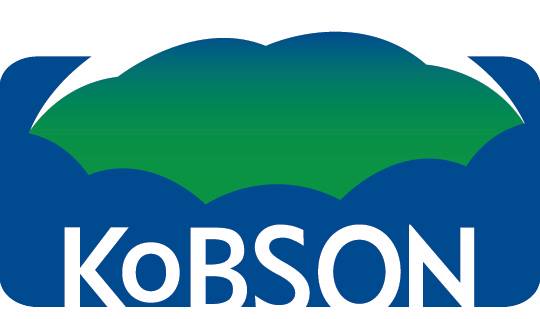DOI: 10.5937/jaes0-32961
This is an open access article distributed under the CC BY 4.0

Volume 20 article 962 pages: 562-570
Tire models are widely used in research in the field of vehicle dynamics and noise, and especially in the simulation of their movement under the action of forces and moments. In general case, we distinguish theoretical models defined on the basis of tire construction and empirical or semi-empirical models based on experimental tests. In addition, a combination of these two types of models can also produce tire models. In practice, there is a very wide range of mathematical tire models defined using finite element analysis, by approximation of polynomials of different degrees, by approximation of magic formula, etc. In this paper, an attempt is made to calculate non-stationary lateral characteristics of tires on the basis of experimental stationary lateral characteristics, using two-parameter higher level polynomials. This polynomials define the tire lateral characteristics, and take into account their non-uniformity. More specifically, the lateral characteristics are approximated as a function of the dynamic change of the slip angle, radial load due to tire non-uniformity and time.
The research presented in this paper is funded by the Ministry of Education, Science and Technological Development of the Republic of Serbia under agreement No. 451-03-9/2021-14/200105 dated 5.2.2021.
1. Oritz, A. at all. (2006). An easy procedure to determine Magic Formula parameters: a comparative study between the starting value optimization technique and the IMMa optimization algorithm, Vehicle System Dynamics, Vol. 44, No 9, pp. 689-718.
2. Pacejka, H. B., Bekker, E. (1993). The Magic Formula Tire Model, Vehicle System Dynamics, 21, pp. 1-18.
3. Pacejka, H. B.: and Besselink, I. J. M. (1997). Magic Formula tyre model with transient propoertis, Vehicle System Dynamics Supplement, 27, pp. 234-249.
4. Demić M. (1985). Contribution to modelling of stationary lateral tire characteristics, ISATA, Graz.
5. Demić, M. (1999). The Definition of the Tires Limit of Admissible Nonuniformity by Using he Vehicle Vibratory Model, Vehicle System Dynamics, 31.
6. Demić M. (2013). Prilog identifikaciji modela stacionarnih bočnih karakteristika pneumatika, Tehnika-Mašinstvo, Vol. 62, Br 4, str. 653-658.
7. Genta A. (2003) Motor Vehicle Dynamics, Politecnika di Torino.
8. Gillespie T. D. (1992) Fundamentals of Vehicle Dynamics, SAE.
9. Ellis, J. R. (1973) Vehicle Dynamics, Business Books, London.
10. Miliken W., Miliken D. (1995) Race Car Dynamics, SAE.
11. Mitschke M. (1972). Dynamik der Kraftfahrzeuge (in German), Springer Verlag.
12. Bunday P.(1984) Basic optimisation methods. Spottiswoode Ballantyne, Colchester London.
13. Meng Du. (2020). A Study on the Influence of Tire Speed and Pressure on Measurement Parameters Obtained from High-Speed Tire Uniformity Testing Licensee MDPI, (http://creativecommons.org/licenses/by/4.0/).
14. Doria1, A. at all. (2016). Identification of the Mechanical Properties of Tires for Wheelchair Simulation, The Open Mechanical Engineering Journal, 2016, 10, 183-200, available at: www.benthamopen.com/TOMEJ/, DOI: 10.2174/1874155X01610010183
15. Sina, N. at all. (2014). Excitation Behavior of Tire and Wheel Assembly Faults in Shape of Non-uniformity in a Vehicle, 8th Condition Monitoring & Fault Diagnosis Conference February, Sharif University of Technology, Iran.
16. Peng, C. at all.( 1994). Lateral tyre dynamic characteristics, Journal of Terramechanics Volume 31, Issue 6, Pages 395-414.
17. Parczewski, K., Wnęk, H. (2015). The tyre characteristics of the physical model used to investigate the lateral stability of a vehicle, https://journals.sagepub.com/doi/abs/10.1177/0954407014563734?journalCode=pidb
18. Hassan, M. at all. (2020). Advanced study of tire characteristics and their influence on vehicle lateral stability and untripped rollover threshold, Alexandria Engineering Journal 59, 1613–1628.
19. Doumiati, M. at all. (2010). A method to estimate the lateral tire force and the sideslip angle of a vehicle: Experimental validation, American Control Conference Marriott Waterfront, Baltimore, MD, USA, June 30-July 02.
20. EE261 - The Fourier Transform and its Applications, https://see.stanford.edu/
21. Gonsales, C.R., Woods, E.R.(1980). Digital Image processing, Prentice Hall, New Jersey.
22. Kuroki, N. ”FFT2D” software (2017) http://cas.eedept.kobeu.ac.jp/WelcomeES1/OpenSoft/FFT2D/index_en.html.
23. Bendat J.S., Piersol A.G. (2000), Random Data-Analysis and measurement procedures. London: John Wiley and Sons.







